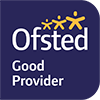Literacy
Vision
At The Sutton Academy we aim for all students to be fluent in their knowledge and use of the English language. We want all students to have an understanding of literacy which will allow them to access our challenging curriculum as well as contributing to discussions taking place in the wider world and within the communities they are part of.
Rationale
We believe in the fundamental principle that literacy is the key to improving learning and raising standards. Literacy underpins the whole school curriculum by developing students’ abilities to speak, listen, read and write for a wide range of purposes, using language to learn and communicate, to think, explore and organise ideas.
Poor levels of literacy impact negatively on what students can do and how they see themselves. Crucially, we believe that literate students will ultimately emerge as confident and articulate communicators, fully prepared to enter the adult world, whether to continue their academic studies or to enter the world of work.
All teaching staff are multi-disciplinary teachers of literacy. As such, colleagues at The Sutton Academy are committed to developing literacy skills in all our students. We share responsibility for the teaching of literacy across the curriculum and recognise our statutory responsibilities.
It is the responsibility of all staff to model and promote good literacy. Planning for literacy should be a consideration in all lessons. Students’ individual progress and needs should be planned for and responded to, in the same way as for subject specific progress.
A culture of literacy
Literacy at The Sutton Academy is not a bolt-on to the established curriculum; it is integral to the success of every aspect of school life. Staff, students, and parents all have a role to play in promoting literacy skills to students.
Opportunities for literacy development are exploited at every part of the school day, from the moment students enter the Academy to the moment they leave. Tutors read with their students, expose them to new and challenging texts, and encourage them to explore ideas and concepts both within and beyond their cultural experience.
In lessons, students are exposed to challenging and thought-provoking texts and encouraged to interrogate and develop confidence in using higher-order vocabulary. It is our aim to empower students to both engage with, be critical of, and use extended vocabulary in their own analyses.
Literacy within the curriculum
The promotion of high-level literacy skills is at the very core of our curriculum. Via curriculum mapping it is possible to identify, explore, and refine strategies to encourage detailed engagement with both reading, vocabulary, and oracy. Additionally, it is possible to engage in cross-faculty discussions enabling staff at all levels to discuss common approaches to promoting literacy, identifying misconceptions and promoting challenging material.
Vocabulary development
At the academy, we whole-heartedly support the statement made within the National Curriculum that: ‘pupils’ acquisition and command of vocabulary are key to their learning and progress across the whole curriculum.’ As a result, all teachers at the academy develop the vocabulary of their students.
Tier 2 vocabulary, or academic language which can be utilised across disciplines, is a key focus at the academy. Teaching staff have identified opportunities to promote higher level cross-curricular academic language in their lessons. These should be explicitly taught in lessons and regular checkpoints established in order to monitor student usage of vocabulary.
Reading within the curriculum
Please see Reading here.


